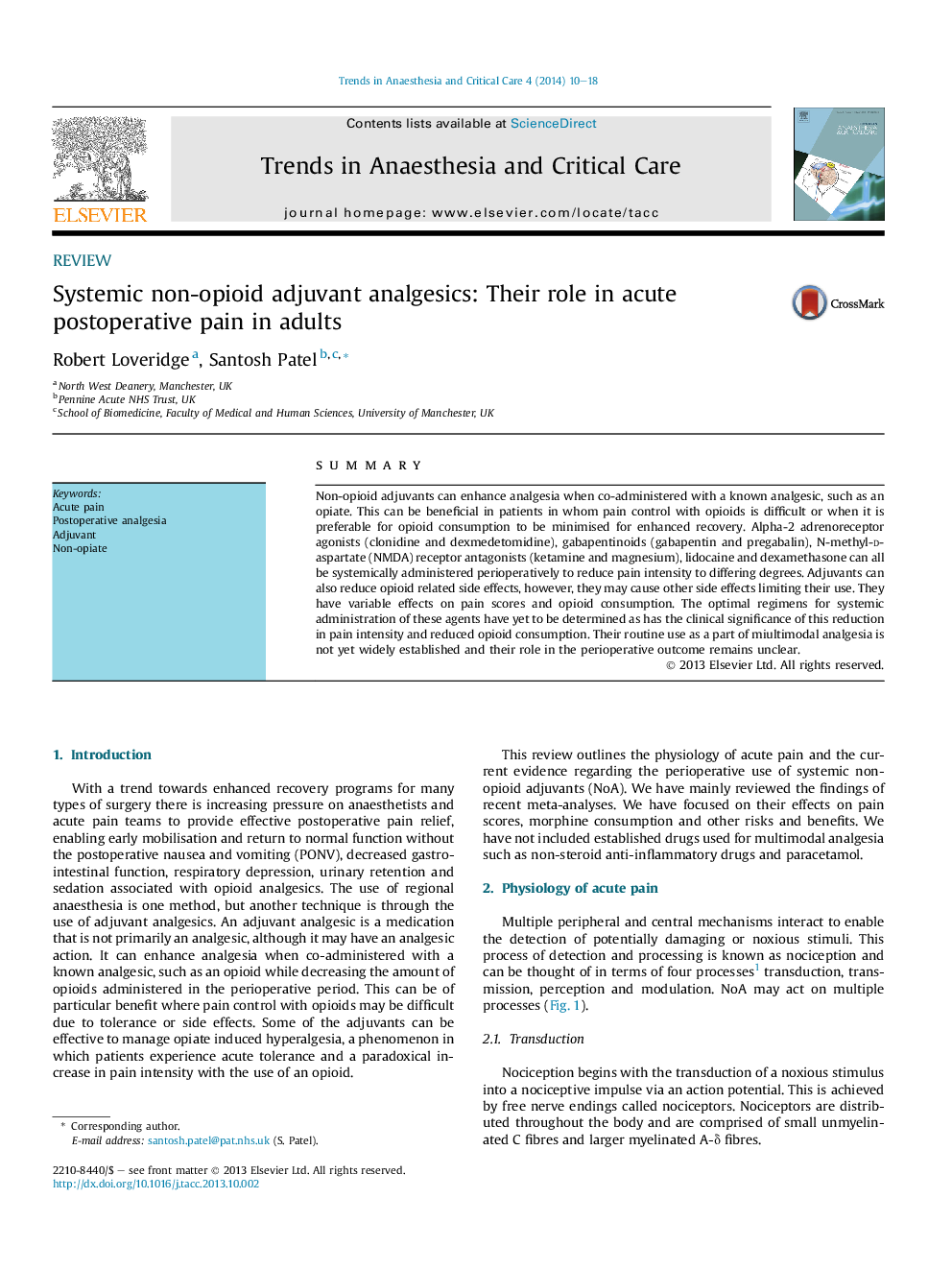| Article ID | Journal | Published Year | Pages | File Type |
|---|---|---|---|---|
| 2772730 | Trends in Anaesthesia and Critical Care | 2014 | 9 Pages |
SummaryNon-opioid adjuvants can enhance analgesia when co-administered with a known analgesic, such as an opiate. This can be beneficial in patients in whom pain control with opioids is difficult or when it is preferable for opioid consumption to be minimised for enhanced recovery. Alpha-2 adrenoreceptor agonists (clonidine and dexmedetomidine), gabapentinoids (gabapentin and pregabalin), N-methyl-d-aspartate (NMDA) receptor antagonists (ketamine and magnesium), lidocaine and dexamethasone can all be systemically administered perioperatively to reduce pain intensity to differing degrees. Adjuvants can also reduce opioid related side effects, however, they may cause other side effects limiting their use. They have variable effects on pain scores and opioid consumption. The optimal regimens for systemic administration of these agents have yet to be determined as has the clinical significance of this reduction in pain intensity and reduced opioid consumption. Their routine use as a part of miultimodal analgesia is not yet widely established and their role in the perioperative outcome remains unclear.
